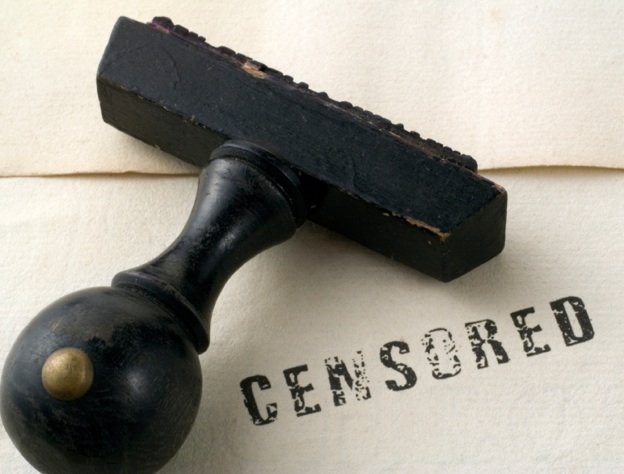SingaporeMotherhood | Parenting
February 2013
Censorship & your Child

Do you believe in censorship for children? Frankly, I feel that censorship is not an issue. We live in a time where children can easily access information, ideas, and images on their own. And chances are, your child will be far more competent on the technological front, and be able to conjure more from the World Wide Web than you.
The thing however, is that children are more vulnerable than adults when it comes to information processing. Which is why I think that children do need some form of censorship, but that this should come from their parents, instead of being enforced by the powers that be.
[banner][/banner]
At the risk of sounding totally uncool, I’ll admit that I am a prude. I want to wrap my children – aged four and seven – in bubble wrap and protect them from the bad, the ugly, and everything else in between. No sex, no violence, no gore. I want to smother them in love and laughter until they puke from an excess of it. But the reality of life is that I can’t.
It would be unrealistic to screen them from darkness and evil, pain and suffering. The world that they are growing up in is not immune to these. The best thing I can do is to engage them in discussion when we meet these moments, and provide an age-appropriate context in which they can understand what they see and hear.
I’ve found that children themselves are natural censors anyway. As author Judy Blume has said, “Kids are really good at knowing what they can handle.” If they’re not ready to accept the harsher truth, their inner resilience takes over and allows them to remain ensconced in the comfort of puerile innocence.
So I believe that all material – in any form – should be available. The time and age at which children receive them is what matters. Parental involvement is the key.
Before you object to what your child is reading, watching or surfing about, check it out yourself, and be prepared to answer questions about it if and when your child asks.
If your child has access to the World Wide Web, be with him when he takes an online journey. Travel the Internet with him and explore together so that when something unsavoury appears, you are there to answer his questions, satiate his curiousity. There is no point caging a child from the world.
My seven-year-old son, like any other testosterone-fuelled male, likes watching action films, especially war movies. The more fight sequences, the better. Even though people get shot and die, I ask. Yes, he says. Why? Doesn’t it bother you? I ask. No, it is just a movie. It’s not real, he assures me.
Talk about death however, gets his waterworks going. He is not ready to process the concept of death, even though he’s happy to watch it onscreen and play “bang bang you’re dead” games with his sibling.
But when he and his brother are ready to take that step towards a deeper understanding – about death, sex, violence, or anything else – and when the questions come, I will damn well be ready to discuss and guide them in their process of discovery.
Because I don’t want to censor my children from the world that we live in. I want to educate them, not isolate them. I want them to know that everything dances on a fine balance, that there are more than 50 shades of grey, and that they can go wild as long as they know the way back.
And when they grow up, I want them to have the freedom to deal with our world as it changes: to think, to question, and if necessary to provoke – without censorship.
KID-FRIENDLY GUIDES
As a parent you play a unique role in the curation of your child’s audio-visual experience. Before they have independent access to them, you get to select what material your child reads, watches, and listens to. These child-friendly guides make it easier to sieve through the vast catalogue out there. But do take them with an open mind and a pinch (or more) or salt!
Kids In Mind
Provides objective and complete information about a film’s content so that parents can decide, based on their own value system, whether they should watch a movie with or without their kids.
The School Collection
A compilation of the National Council of Teachers of English (NCTE) and the American Library Association’s (ALA) lists of 100 most frequently challenged books. Titles are divided into three reading levels: picture books, children’s books (including early readers & chapter books), and young adult books.
Put Yourself in Their Shoes: Understanding How Your Children See the World
Barbara Meltz, a Boston Globe columnist who has been writing about parenting for over a decade, offers practical advice on how to deal with child rearing issues, including censorship.
All content from this article, including images, cannot be reproduced without credits or written permission from SingaporeMotherhood.
Follow us on Facebook, Instagram, and Telegram for the latest article and promotion updates.






